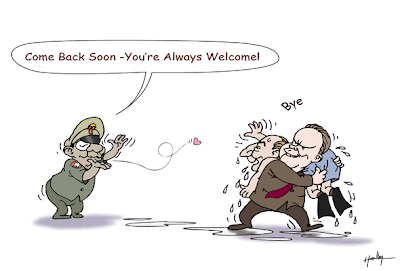Rohingya Teenagers Die in Thai Detention Camp
By LAWI WENG
The Irrawaddy News
Two young Rohingya migrants have died in the past three months in a detention camp in southern Thailand, the Bangkok English-language daily newspaper, The Nation, reported on Tuesday.
13 other inmates are in poor health, The Nation reported.
The Ranong camp, near Thailand’s southern border with Burma, is holding 55 Rohingya illegal migrants who were arrested on the Thai coast in January after they fled in open boats from Burma. Thai authorities allowed the United Nations High Commissioner for Refugees (UNHCR) to visit the camp in January and February but have not granted access since then.
The two dead migrants were aged 19 and 15. An immigration officer, Pol Lt Col Nattarit Pinpak, told The Nation that they had refused food or drink for several days. They were depressed and homesick, the police officer said.
UNHCR regional spokeswoman Kitty McKinsey, told The Irrawaddy on Tuesday that requests for access to the camp had not been granted.
“We have asked the Thai government many times for access there. We told the Thai government that we are ready to help them [the detained migrants]. We want to know what their protection needs are. But we are not getting access.”
Twenty nine Rohingyas who were also arrested in January were deported to Bangladesh after their documents showed they were Bangladesh citizens.
Despite extensive discussions with Thai immigration officials, Burma has refused to take back the remaining Rohingyas, saying they are not Burmese citizens.
Hundreds of Rohingyas, Muslim victims of discrimination and human rights abuses in Burma’s Arakan State, have been fleeing in open boats, hoping to reach Malaysia. Unknown numbers have drowned on the open sea, and international rights groups have accused the Thai navy of turning back boats that tried to land in Thailand. The Thai government has denied the charges.
READ MORE---> Rohingya Teenagers Die in Thai Detention Camp...

















